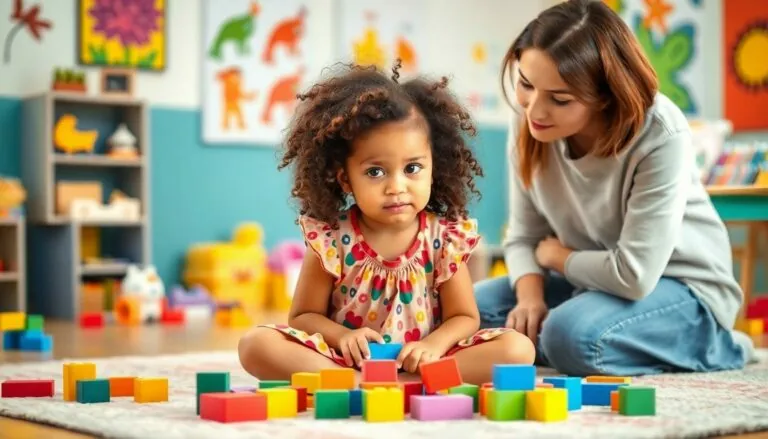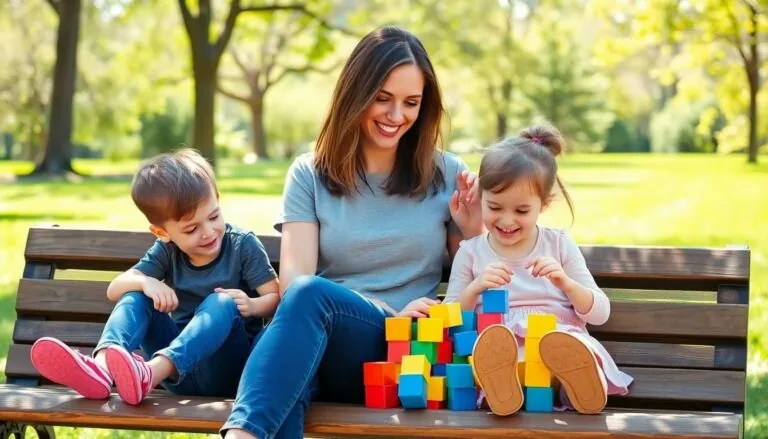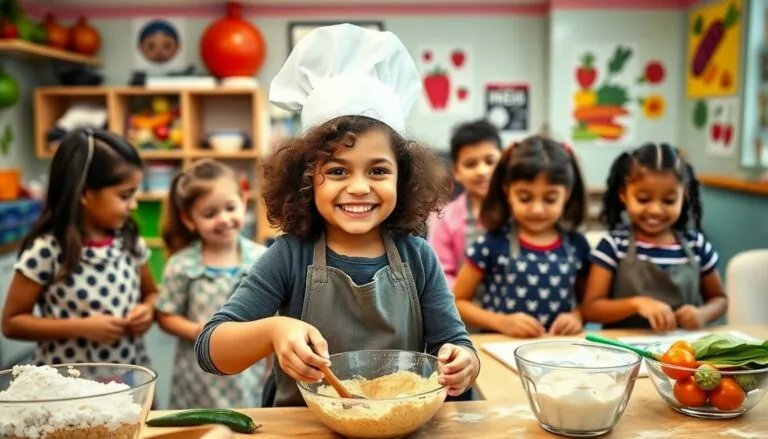Getting kids excited about cooking isn’t just about creating mini master chefs – it’s about building confidence skills and memories that’ll last a lifetime. Kids’ cooking camps offer young aspiring culinarians the perfect blend of fun learning and hands-on kitchen experience while giving parents a break from the constant chorus of “I’m hungry!”
These specialized summer programs transform ordinary kitchens into exciting culinary classrooms where children learn everything from basic food safety to advanced cooking techniques. They’ll whisk whip and sauté their way through recipes while making new friends and discovering that vegetables aren’t actually their sworn enemies. Plus they’ll bring home delicious treats and maybe even help with dinner (parents can dream right?).
Table of Contents
ToggleBenefits of Kids Cooking Camps
Kids cooking camps provide children with hands-on experience preparing meals while learning essential life skills. These programs combine practical education with engaging activities to create memorable learning experiences.
Building Life Skills Through Cooking
Cooking camps teach children fundamental kitchen competencies that translate into valuable life skills. Kids learn meal planning through recipe selection scheduling grocery lists. They develop mathematical abilities by measuring ingredients calculating cooking times scaling recipes. Food safety principles include proper hand washing temperature control cross-contamination prevention. Children gain kitchen organization skills through mise en place techniques equipment handling proper storage methods. These camps foster independence responsibility by teaching kids to clean as they cook maintain orderly workstations follow recipes independently.
Social and Educational Advantages
Kids cooking camps create collaborative environments where children connect through shared culinary experiences. Students practice teamwork by coordinating tasks sharing equipment completing group recipes. The camps integrate core academic subjects: chemistry through ingredient reactions math via measurements geography through international cuisine studies. Children expand their vocabulary learning cooking terms ingredient names culinary techniques. Cultural awareness grows as kids explore global recipes traditions cooking methods from different regions. Communication skills develop through recipe discussions ingredient explanations kitchen safety instructions among peers.
Types of Cooking Camps for Children
Children’s cooking camps come in various formats to accommodate different schedules, skill levels and learning preferences. These specialized programs create structured environments where young chefs develop culinary skills through hands-on experience.
Day Camps vs Residential Programs
Day camps operate during regular business hours (8am-4pm) allowing children to return home each evening. These programs typically run in 1-week sessions featuring 4-6 hours of daily cooking instruction mixed with recreational activities. Local culinary schools, community centers and recreational facilities host most day camps.
Residential programs offer immersive 2-4 week experiences where participants live on-site at dedicated camp facilities. Campers receive 25-30 hours of weekly kitchen instruction combined with traditional camp activities like swimming, sports and crafts. Top culinary institutes provide specialized residential programs for aspiring young chefs ages 12-17.
Age-Appropriate Camp Options
Programs for ages 5-7 focus on basic kitchen safety, simple no-cook recipes and food-based crafts. Activities include decorating cookies, assembling trail mix and creating edible art projects.
Camps serving ages 8-11 introduce fundamental cooking techniques, kitchen tool usage and basic recipe following. Children learn to make breakfast items, snacks and simple main dishes.
Teen programs (ages 12-17) cover advanced skills like knife work, cooking methods and original recipe development. Participants prepare multi-course meals, learn plating techniques and explore international cuisines.
| Age Group | Focus Areas | Sample Activities |
|---|---|---|
| 5-7 years | Kitchen safety, No-cook recipes | Cookie decorating, Trail mix |
| 8-11 years | Basic techniques, Simple recipes | Breakfast items, Snacks |
| 12-17 years | Advanced skills, Recipe creation | Multi-course meals, Global cuisine |
What Children Learn at Cooking Camp
Children gain practical culinary education through structured lessons focused on kitchen fundamentals at cooking camps. These programs deliver comprehensive instruction in three core areas: safety protocols, cooking methods and nutritional awareness.
Basic Kitchen Safety and Hygiene
Cooking camps emphasize proper food handling protocols through hands-on training. Kids learn handwashing techniques aligned with FDA standards plus safe ways to handle kitchen tools like knives graters mixers. The curriculum covers critical temperature zones for food storage preventing cross-contamination between ingredients. Students practice cleaning workstations sanitizing surfaces maintaining personal hygiene during food prep. Camp instructors demonstrate proper oven mitt usage safe stovetop practices emergency procedures for cuts burns spills.
Essential Cooking Techniques
Kids master fundamental cooking methods through guided practice sessions. Students learn measuring dry wet ingredients knife skills for chopping dicing mincing produce. The curriculum includes pan frying sautéing boiling steaming baking techniques. Campers practice reading following recipes understanding cooking terminology timing. Activities focus on mixing methods beating folding creaming for baked goods. Students gain hands-on experience with kitchen equipment like blenders food processors stand mixers.
Nutrition and Meal Planning
Campers develop skills to make balanced nutritious meals. Students learn food groups portion sizes reading nutrition labels identifying whole foods. The curriculum covers meal planning budgeting grocery shopping strategies. Kids practice creating weekly menus calculating serving sizes adapting recipes. Activities include identifying lean proteins whole grains seasonal produce. Students learn about special dietary needs food allergies alternative ingredients. Instructors teach sustainable food practices reducing waste composting recycling.
Choosing the Right Cooking Camp
Selecting an appropriate cooking camp requires careful evaluation of several key factors to ensure the best experience for children. The following criteria help parents make informed decisions about cooking programs that match their children’s needs and interests.
Location and Schedule Considerations
Cooking camps operate in various locations including community centers, culinary schools, restaurants during off-hours or dedicated teaching kitchens. The camp’s proximity affects daily commute times, with most parents selecting locations within 30 minutes of home or work. Programs offer flexible scheduling options:
- Full-day sessions running 9 AM to 4 PM
- Half-day programs spanning 4-5 hours
- Week-long summer camps
- Weekend workshops meeting 2-3 hours per session
- Before/after care options for working parents
Parents evaluate facility accessibility, parking availability, public transit options for older children. The kitchen setup includes adequate workstations, proper ventilation systems, emergency exits, first aid stations.
Instructor Qualifications
Professional cooking instructors combine culinary expertise with teaching experience specific to children’s age groups. Top credentials include:
- Culinary arts degree or professional chef certification
- Food safety manager certification
- CPR and first aid training
- Background checks and child safety clearances
- Previous experience teaching children
- References from past cooking programs
The instructor-to-student ratio stays at 1:8 for younger children and 1:12 for teens. Lead instructors partner with teaching assistants to provide individual attention during complex techniques. Staff members receive training in allergy awareness, emergency protocols, positive reinforcement teaching methods.
Popular Kids Cooking Camp Activities
Kids cooking camps engage young chefs in hands-on culinary experiences through diverse activities designed to build skills in a fun environment. These activities combine practical cooking knowledge with creative exploration.
Recipe Creation and Testing
Recipe creation activities transform children into innovative kitchen experimenters. Young chefs learn measurement techniques while mixing ingredients to create original recipes. During testing sessions, campers evaluate flavor combinations taste textures document results with detailed notes. Kids explore recipe modifications by adjusting ingredients substituting alternatives testing different cooking methods. The process includes:
- Recording measurements quantities temperatures
- Documenting taste texture appearance results
- Making recipe cards with step-by-step instructions
- Creating themed menus for special occasions
- Testing recipes multiple times for consistency
Farm-to-Table Experiences
Farm-to-table activities connect children directly with food sources through interactive learning. Campers visit local farms to harvest fresh produce meet farmers understand sustainable growing practices. The program includes:
- Picking seasonal fruits vegetables herbs
- Learning proper harvesting techniques
- Understanding crop growing cycles
- Preparing meals using fresh ingredients
- Composting kitchen scraps for garden use
Participants plant seeds maintain garden plots track plant growth throughout camp sessions. Kids learn soil preparation techniques irrigation methods organic farming practices. These activities reinforce connections between agriculture cooking nutrition environmental stewardship.
Conclusion
Kids’ cooking camps offer an invaluable blend of culinary education and life skill development. These programs create safe spaces where children can explore their creativity in the kitchen while building confidence and friendships that last well beyond summer.
Parents who invest in cooking camps give their children more than just kitchen skills. They’re providing opportunities for academic growth cultural exploration and personal development. As young chefs progress from basic kitchen safety to creating their own recipes they’ll gain independence problem-solving abilities and a lifelong appreciation for good food.
Whether through day camps or residential programs these culinary adventures empower the next generation of home cooks and food enthusiasts. The skills and memories created in kids’ cooking camps will serve them well throughout their lives.







